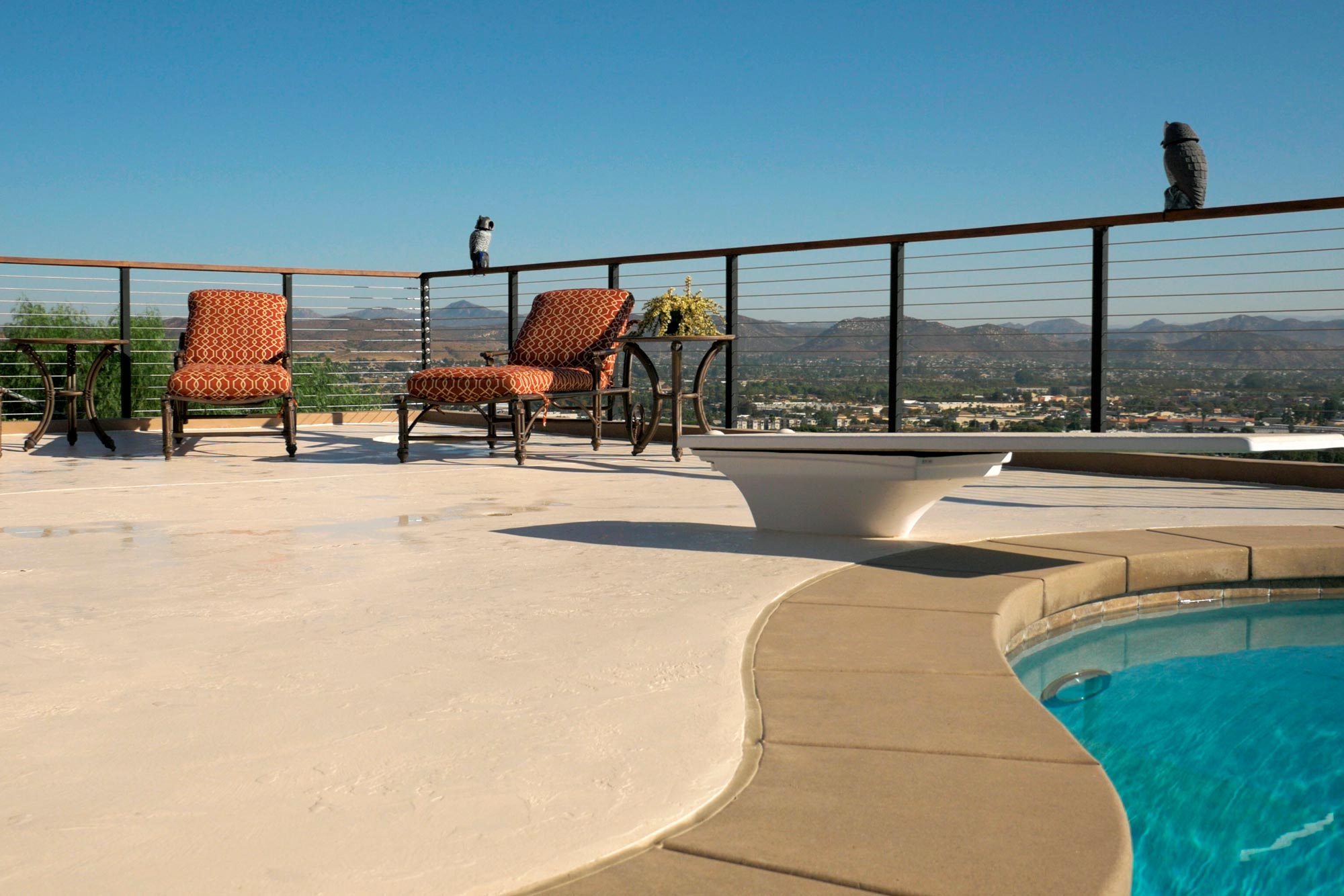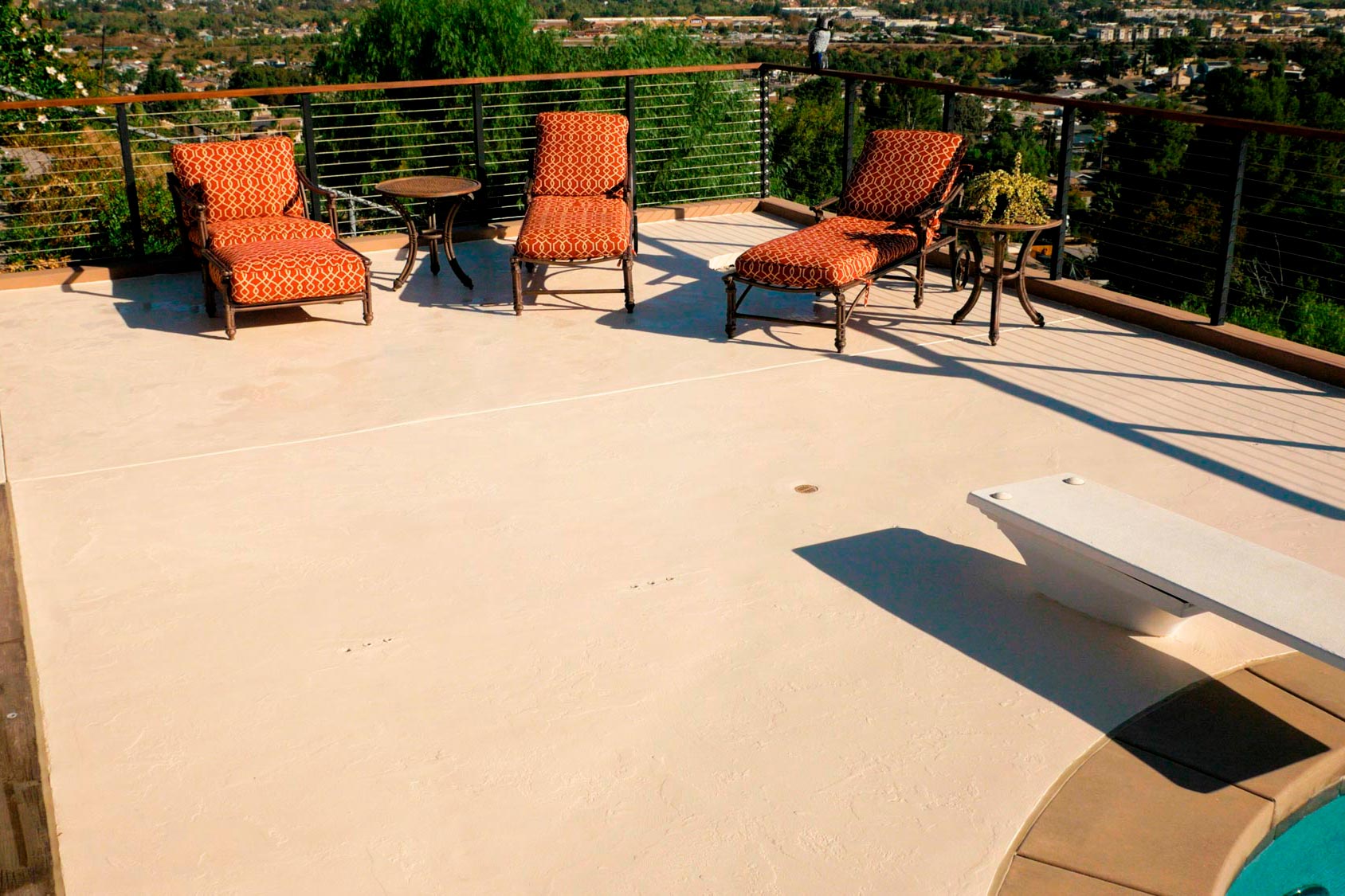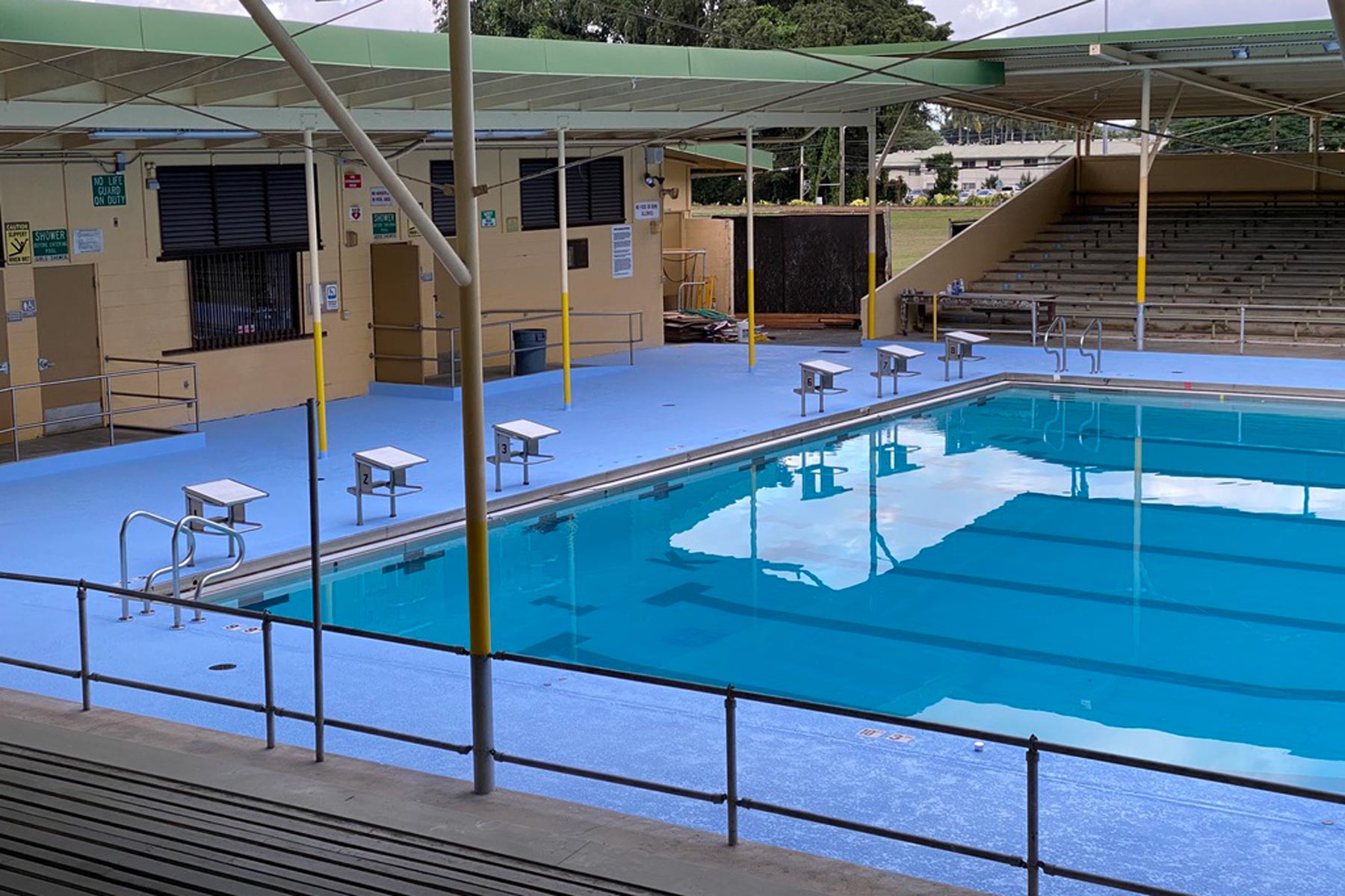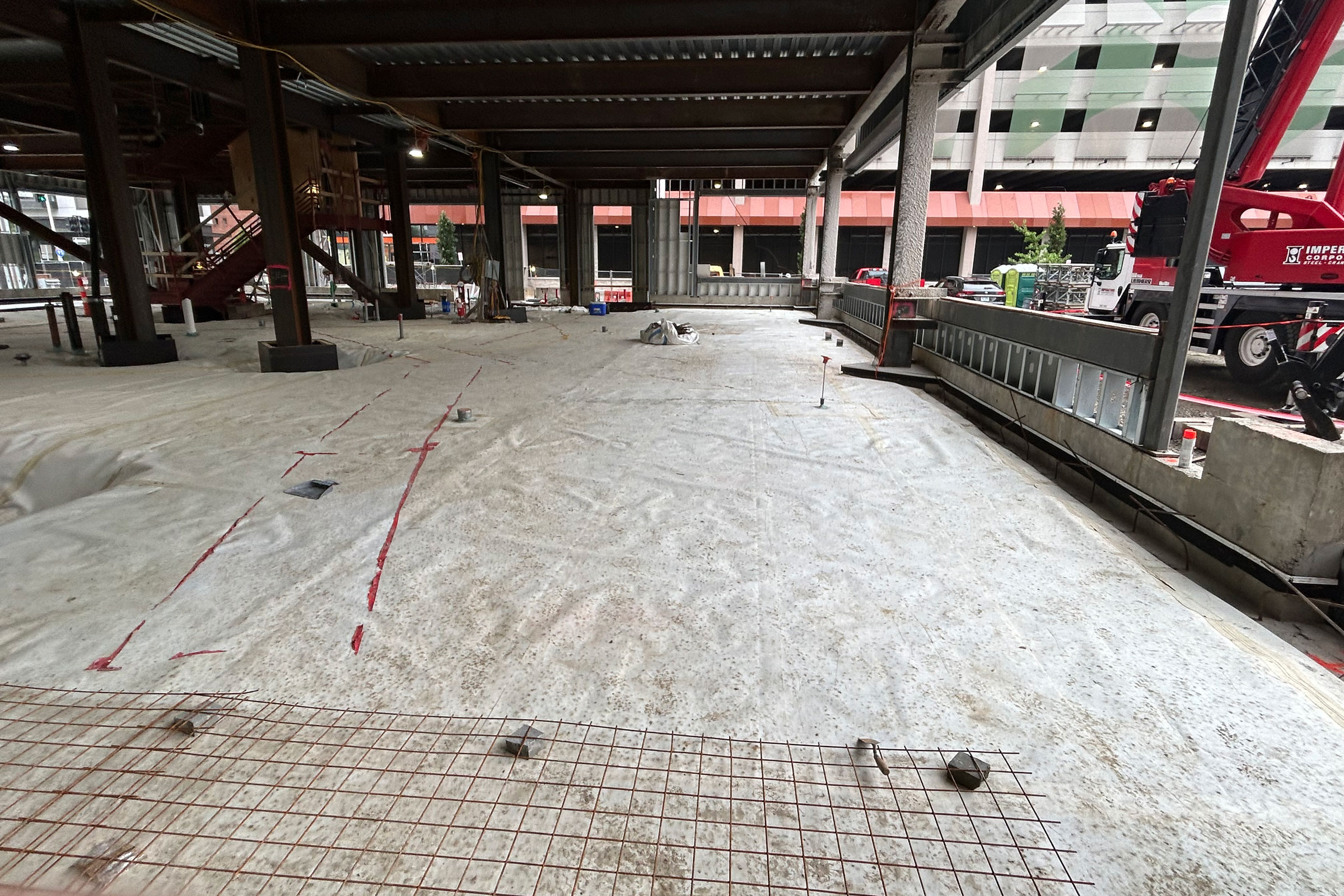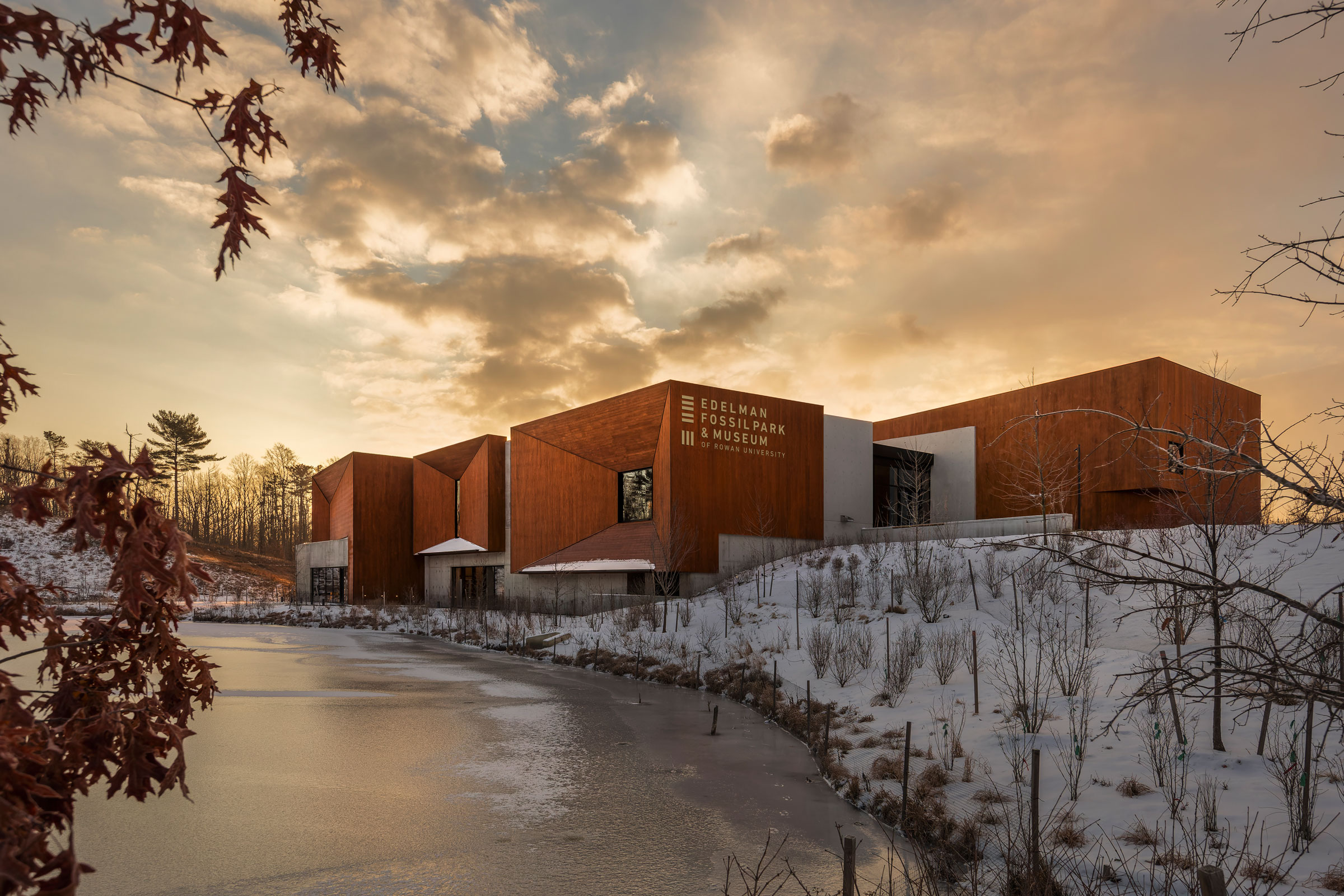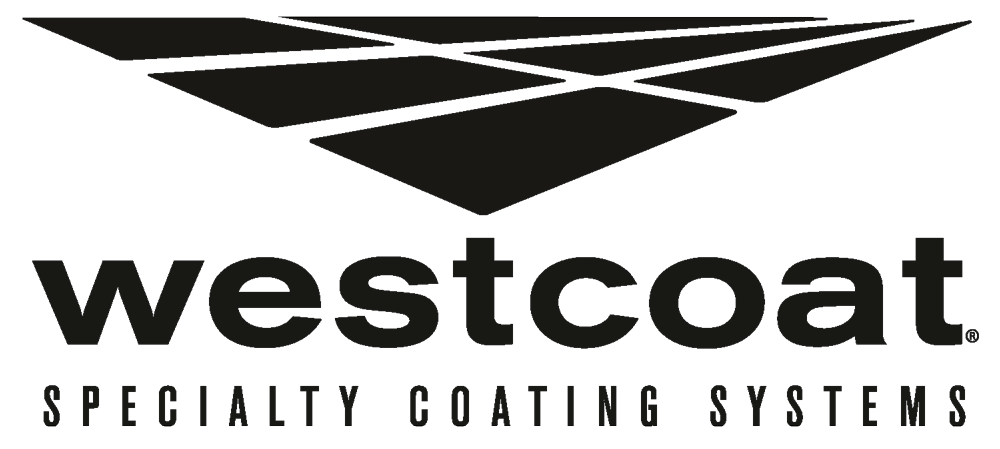Story at a glance:
- Urban heat island effect causes an increased need for cooling across buildings.
- Solar reflective coatings lower surface temperature by decreasing the amount of heat the system’s surroundings absorb and reemit.
- Solar reflective coatings’ light-colored, layered cement and infrared pigmented top coat help to achieve a Cool Roof rating.
Heat islands are not tropical vacation spots, but rather urban areas that experience higher temperatures than outlying regions. Urban heat island effect occurs when city infrastructure—think roads, buildings—absorbs and re-emits more of the sun’s heat than a natural landscape like a forest full of trees. It’s like LA—a city of 4 million people with not a lot of protective vegetation.
Urban heat island effect causes an increased need for cooling across buildings, from homes and offices to hospitals and restaurants. In many spaces temperature is a matter of health and safety rather than an amenity. As people crank up the air conditioning, their energy bills are also on the rise, accompanied by increased demands for fossil fuels that emit sulfur dioxide, nitrogen oxides, and carbon monoxide—and thus a rise in greenhouse gases.
Fortunately there are ways to combat the urban heat island effect, including installing green roofs, applying cool coatings on asphalts and pavements, and adding solar reflective coatings. In fact, solar reflective coatings have many benefits, as they cast sunlight and decrease surface temperature. We talked to Westcoat, a sustainably rated manufacturer of concrete coatings and epoxy, about the advantages of solar reflective coatings.
1. Lower energy costs
When city dwellers experiencing urban heat island effect turn up their cooling systems, their electric bills will follow. Solar reflective coatings provide a cooler urban area, diminishing the need for things like air conditioning and lowering energy costs. They also save the energy that would have been used to run cooling if solar reflective coatings were not in place.
2. Reduced air pollution
Perhaps even more concerning is the amount of greenhouse gases emitted when an entire population has its air conditioning turned on. More electricity usage means more fossil fuels—and a lot more air pollutants released into the atmosphere.
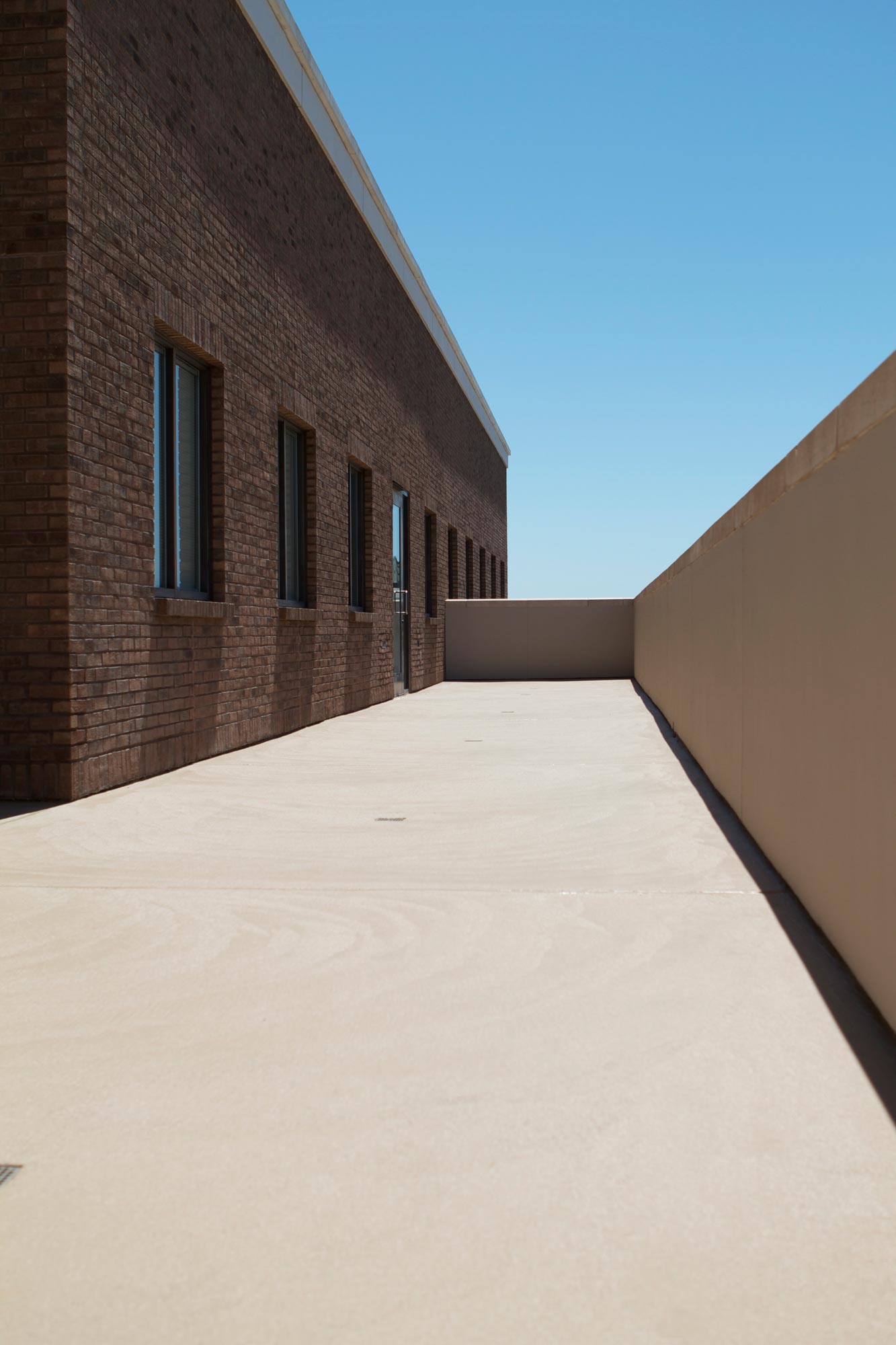
Westcoat offers both solar reflective waterproofing and concrete coating systems. These systems help combat the urban heat island effect by lowering surface temperatures. Here, MACoat Solar Reflective was installed on a Carmel Valley deck. Photo courtesy of Westcoat
3. Decreased surface temperature
In busy cities, packed buildings and roads absorb more heat than what you’d see in more outlying, rural spaces. In the same way that applying cool coatings over asphalt or pavement can reduce the urban heat island effect, so can putting a solar reflective coating on patios, balconies, and walkways.
Coatings reduce the urban heat island effect by lowering surface temperatures—decreasing the amount of heat the system’s surroundings absorb and re-emit. Systems are installed in urban outdoor areas with little shade, where frequent foot traffic requires a ground to walk on. No matter what the temperature is outside, solar reflective coatings keep surfaces from getting so hot people have to run across them.
4. Bond to existing surfaces
Solar reflective systems can be built over plywood decking or concrete that’s already installed. Though just a few layers thick, solar reflective technology effectively blocks out sunlight and water to create a long-lasting system. Westcoat’s standard waterproof flooring has several reinforcement layers of dark gray cement to provide structural support, and their solar reflective systems contain thin layers of white cement to reflect more sunlight.
After a base, slurry, and texture coat are applied over a reinforcement material, a top coat with infrared pigments is applied to further reflect sunlight. Westcoat’s solar reflective Texture-Crete top coat can be applied over both solar reflective and non-solar reflective systems. It can also bond to concrete walkways and pool decks without waterproofing systems.
5. Prolong deck life
Because these coatings reflect sun, they actively prevent deterioration from harmful UV rays. Solar reflective systems also contain a thin membrane that helps to waterproof its layers and stop leaks. The less rain, snow, or pool water that gets through, the longer the substrate lasts.
When a high school in Hawaii didn’t want to remove its old concrete pool deck to pour a new layer, Ross Architect specified Westcoat’s MACoat Waterproofing system. The MACoat system was customized by applying the EC-15 Moisture Vapor Barrier to reduce moisture emissions. Then the system was sealed with SC-10 Solar Reflective Topcoat in Powder Blue.
6. Comply with building energy standards
Solar reflective coatings’ light-colored, layered cement and infrared pigmented top coat help to achieve a Cool Roof rating. The Cool Roof Rating Council (CRRC)’s standards for solar reflective roofs and walls call for a particular thermal emittance and Solar Reflective Index. In a nutshell, a cool roof is one that is designed to reflect more sunlight and absorb less heat than a standard roof.
Westcoat’s solar reflective coatings go even further, as all of their systems meet California Title 24 standards, which promote cutting out needless energy consumption in the state’s buildings.
Westcoat’s ALX™ Solar Reflective Finish System is a waterproof deck system that meets the CRRC requirements of California Title 24. It’s reinforced with metal lath and is installed with a series of three white polymer-modified cementitious applications before being sealed with Westcoat’s Solar Reflective series of SC-10 Acrylic Topcoats. The system gives plywood the look and the feel of concrete with a decorative appeal while reducing the urban heat island effect.
Westcoat manufactures out of San Diego. “We are no stranger to sustainability and energy efficiency initiatives,” says Mallory Cabading, Westcoat’s architectural representative. “With the addition of the solar reflective series, we can provide a California Title 24, Cool Roof Rated waterproof deck coating solution.”

